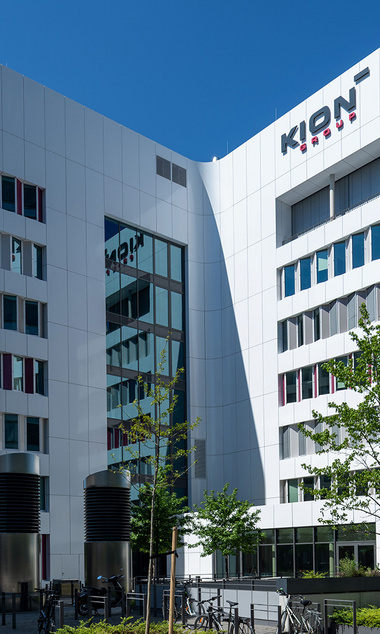
- Success Story
Citizen Development at Porsche AG
MHP enables significant cost savings through a low-code platform.
Low-Code-Platform
The “low-code” and “no-code” buzzwords have become an integral part of many companies’ digitalization strategies. The goal is to enable employees who do not have programming skills to act as “citizen developers” and independently develop simple applications to automate standard processes—without relying on IT departments, which are often chronically overburdened. The benefit is obvious: The more employees who are actively working on the development of digital solutions, the faster the associated efficiency and cost benefits can be realized.
Porsche AG recognized the huge potential of low-code technology as long ago as 2021 and started to roll out one of the leading low-code platforms on the market across the Group as part of its digitalization strategy. However, a project of this scale requires not only technological expertise but also experience in establishing governance structures and driving change management. That’s why Porsche turned to MHP at an early stage.
What is a Low-Code-Platform?
A low-code platform is a software development platform that enables applications to be created while requiring only minimal manual programming. These platforms use visual application design tools and graphical modeling methods instead of traditional text-based programming languages. New applications are created by dragging and dropping ready-made standard modules—fast, uncomplicated and user-friendly. Most low-code platforms also allow individual interface developments to be realized for special applications. However, this function should generally be reserved for more advanced users.
Clear Rules for Sustainable Success
Citizen development opens up new opportunities for employees. Everyone has the chance to turn their own ideas into finished applications with little effort. This new freedom unlocks additional potential and resources in application development, but it also brings its own challenges. Uniform standards and clear guidelines are needed to ensure that citizen development works in practice:
Who can develop which type of application? Which applications will be rolled out company-wide? How can an uncontrolled proliferation of apps be prevented?
These are the questions our teams addressed when developing a comprehensive governance strategy. This ensures that all applications meet current security standards and comply with both legal requirements and our customers’ internal guidelines. At its core, the strategy divides platform users into three groups, each with distinct usage and access rights.
1. Citizen Developer
The largest user group consists of employees with little to no programming knowledge. They have access to the low-code platform’s standard functions.
2. Advanced Developer
Advanced users have access to extended functions and can, for example, work with the platform’s integrated database. They can also set up interfaces to external systems—within the integration options defined by the governance strategy. Advanced developers work in dedicated development environments, and applications are transferred to test and production systems via a regulated release and staging process.
3. Professional Developer
The third and smallest user group is the core team of professional developers. Their focus is on building complex, cross-system applications, with access to specialized features for this purpose.
MHP as a Quality Gate
The more complex the application, the more critical is the final quality check before rollout. Our team is responsible for deploying all applications developed by advanced and professional developers. This means that each of these applications is rigorously put through its paces by our experts before going live. As a result, any defects or malfunctions are detected and rectified at an early stage.
Applications from citizen developers, on the other hand, are not independently checked. The scope of action for citizen developers is clearly defined through the usage rights and development standards defined in the governance strategy as well as the platform’s design. This effectively eliminates the risk of serious misdevelopment. If users encounter problems when developing their application, help is available to them from our service desk or in the citizen developer community.
The Center of Excellence as a Central Monitoring Instance
Which apps have already been developed? From which department? And how often are the individual applications actually used? Porsche managers can find answers to these questions at the Center of Excellence (CoE). The KPIs collected here paint a clear picture of the use of the new low-code platform and allow those accountable to draw conclusions about the ROI of their initiatives.
As mentoring is at least as important as monitoring, users can call our MHP team at the service desk to discuss any difficulties while developing an application.
The app catalog also offers extra assistance and, above all, inspiration. As the name suggests, dedicated developers will find templates for the most frequent use cases here. These templates have been created by experienced low-code developers especially for citizen developers and can either be used off-the-shelf or adapted to the specific use case.
The app catalog also reinforces the community spirit: Users can present the applications they have already developed in the “Inspiration” area and network with each other.
Enablement: No Added Value without Commitment
Once the technological foundation had been laid and the governance strategy finalized, our experts were able to launch the new low-code platform company-wide at the end of 2022—but this only marked the beginning of the most important phase of the project. The new platform could not be fully effective unless employees were enthusiastic to actually use the new tool. No citizen development without “citizens”.
Our experts presented the low-code idea to various working groups as a first step. From here, the project was taken back to individual specialist departments. Alongside this classic top-down cascade, our colleagues pursued a bottom-up approach and created their own low-code community. Here, for example, anyone keen to explore can find suitable learning content to help them learn step by step how to use the new platform. The exchange between users is at the heart of it all. This is where ideas can be shared, challenges discussed and operational problems solved together.
Over 10,000 Apps and Workflows Developed in Two Years
Our MHP experts themselves are also active low-code community members. They provide support with complex technical problems and make new learning content available at regular intervals. This is well received by users: The low-code community is one of the most active in the entire Porsche Group with over 10,000 low-code applications developed and hundreds of active users.
Low-Code, High Potential
The successful introduction of the low-code platform provides an extra boost for digitalization in the Porsche Group. Specialist departments can now independently automate simple processes, enabling significant efficiency gains and cost savings. On the other hand, the approach promotes a culture of innovation and personal responsibility that every company should truly aspire to.






